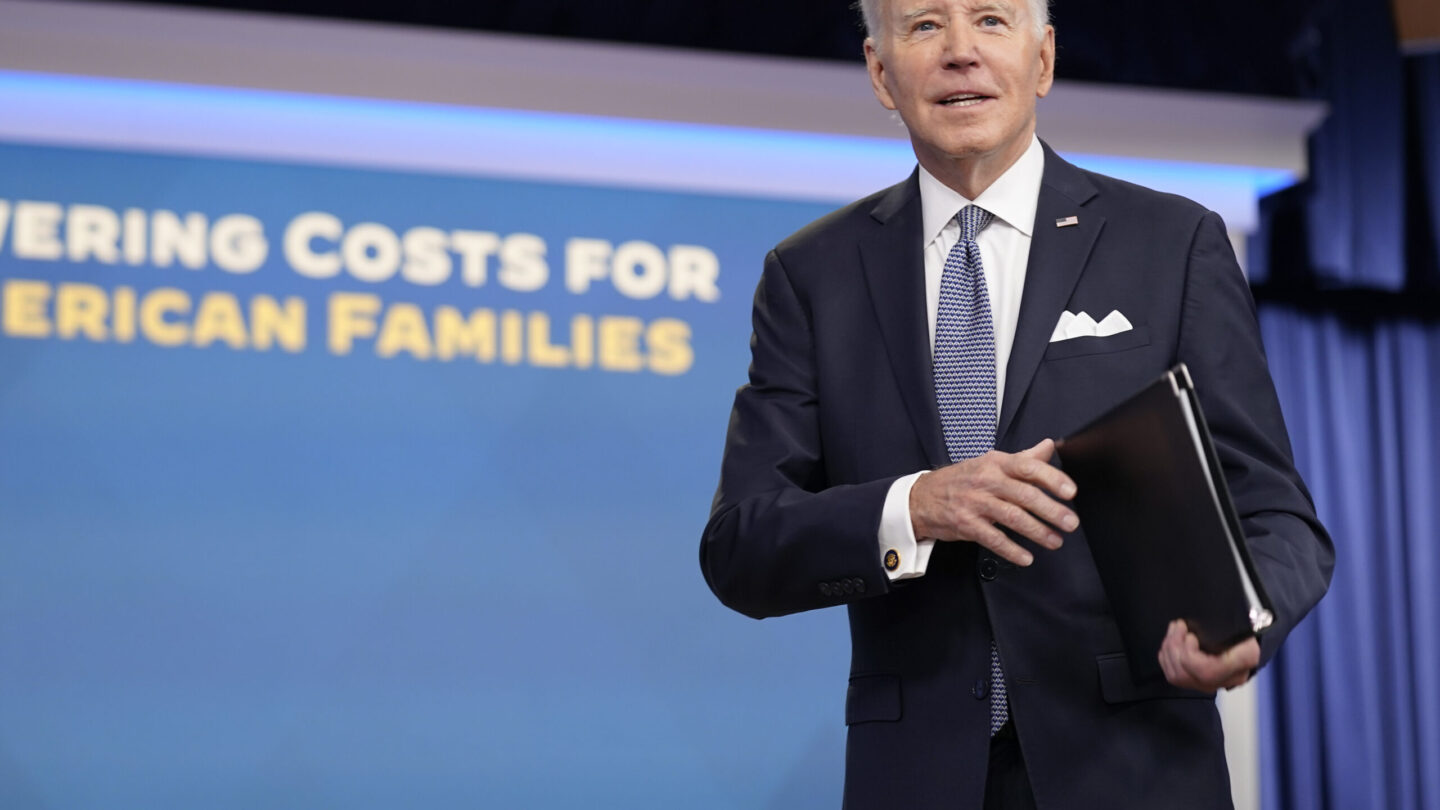President Joe Biden on Friday rolled out a new set of initiatives to reduce health care costs: a crackdown on what he called “junk” insurance plans that play consumers as ‘suckers,’ new guidance to prevent surprise medical bills and an effort to reduce medical debt tied to credit cards.
Biden is building on previous initiatives to limit health care costs, with the Department of Health and Human Services releasing new estimates showing 18.7 million older adults and other Medicare beneficiaries will save an estimated $400 per year in prescription drug costs in 2025 because of the president placing a cap on out-of-pocket spending as part of last year’s Inflation Reduction Act.
Gearing up for his 2024 reelection campaign as inflation remains a dominant concern for voters, the Democratic president has emphasized his policies to help families manage their expenses, as well as a spate of government incentives to encourage private sector development of electric vehicles, clean energy and advanced computer chips.
Republican lawmakers have criticized Biden’s policies by saying they have spurred higher prices that hurt the well-being of families.
Biden said his administration was taking aim at what he called “junk” insurance plans, such as short-term policies that can deny basic coverage as people transition between employers and still need temporary health care coverage.
The new proposed rules aims to close loopholes that allow insurers to offer products that can discriminate based on pre-existing conditions and market to consumers coverage that provides little or no coverage.
“In America, it sounds corny, but fairness is something we kind of expect,” Biden said. “And I don’t know anybody who likes to be viewed as having been played for a sucker.”
Biden invited Cory Dowd to tell his story at the White House event to spotlight the initiative. Dowd in 2019 purchased a high-deductible health care plan when he returned stateside after serving in the Peace Corps in Ghana but before he started graduate school and was able to get on a student health plan. He thought the plan would protect him in the case of a medical emergency.
But just weeks before he started school, he had to have emergency surgery to remove his appendix. Months later, the hospital called him to tell him his insurer would only cover a small portion of his bill and that he would have to pay more than $37,000 out of pocket.
“For me, there was both a financial and emotional cost,” said Dowd, who added that the insurer relented after news coverage about his situation. “I’ve always considered myself a very responsible person. But this really took a toll on my self-esteem and my identity.”
Biden also announced new guidance on medical billing stemming from 2020’s No Surprises Act. The guidance would limit the ability of insurers that contract with hospitals to claim provided care was not in network and have customers pay more money. Health plans also would need to disclose facility fees that are increasingly charged to patients and can surface as an unexpected cost in a medical bill.
“Folks, that’s not health insurance,” Biden said. “That’s a scam. It has to end.”
The Consumer Financial Protection Bureau and Treasury Department also are seeking information on third-party credit cards and loans that are specifically used to pay for health care. The higher costs and interest charges can discourage people in need of treatment from seeking care.
The president in his remarks also highlighted previous efforts to reduce health care costs, including a plan allowing Medicare to negotiate lower prices for prescription drugs and a $35 monthly price cap on insulin for people in Medicare Part B.










